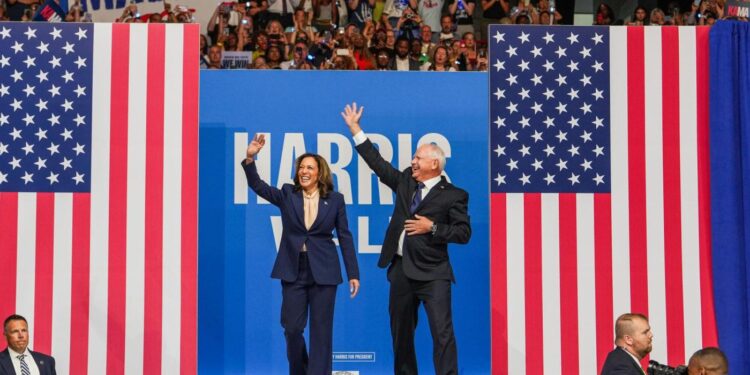
The campaign of Kamala Harris and Tim Walz has been quite deliberate in invoking “freedom” as part of their messaging.
On the one hand, it’s a good thing that the importance of freedom remains something American politicians want to at least give a nod too.
On the other hand, it’s apparent that the Harris-Walz notion of freedom is a vague and elastic one indeed.
Harris’ first ad as a presidential candidate used Beyonce’s song “Freedom” in the background. She then spoke of “the freedom not just to get by, but get ahead,” “the freedom to be safe from gun violence,” and “the freedom to make decisions about your body.”
At the first Harris-Walz campaign rally after Walz’s announcement as Harris’ vice presidential pick, Pennsylvania Gov. Josh Shapiro declared, “It’s not freedom to say you can go to work but you can’t join a union. It’s not freedom to tell women what they can do with their bodies. That’s not freedom.”
He continued, “You know what Kamala Harris and Tim Walz are for? They are for real freedom.”
OK. So are Harris-Walz the champions of freedom in this presidential race?
It’s true that on some issues, particularly on some social issues like marijuana legalization, they are taking a more freedom-oriented approach. But it’s hard to say their commitments to freedom go much further than that.
Harris has already revealed a heavy-handed approach to the economy with her call for federal policing of food prices. Her embrace of the PRO Act would put the government’s thumb on the scale in favor of unionization. And she has backed a massive spike in corporate taxes. Paired with Walz’s “One person’s socialism is another person’s neighborliness” line, it’s doubtful Harris and Walz can be seriously described as thinking from a freedom-first perspective on economic matters.
On freedom of speech, both Harris and Walz have previously backed crackdowns on social media for speech they don’t like. And both have backed gun bans and other intrusions on Second Amendment rights.
Needless to say, their commitments to freedom are, to put it charitably, qualified and narrow in scope. They might like the sound of “freedom,” but it’s not their top priority.
Originally Published:







